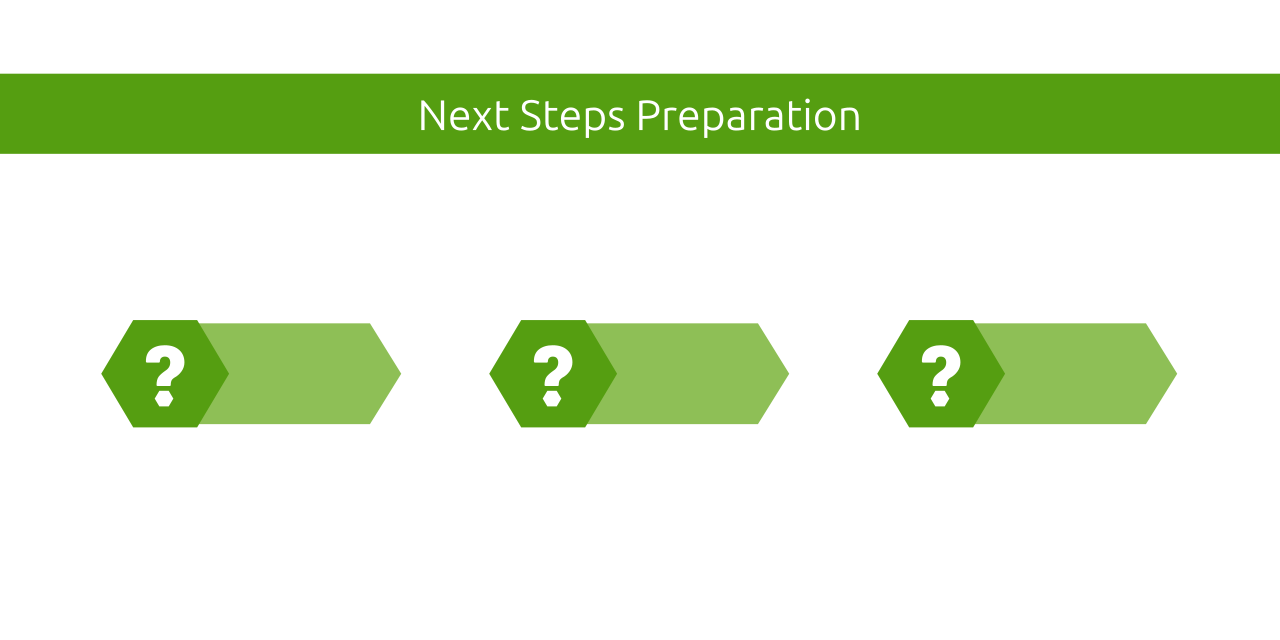Next Steps

Now that you've finished the roadmap, what's next? There is good news and bad news! The good news is that finishing this roadmap should increase your chances in the market. The bad news is that the tech industry is always evolving super fast, and the DevOps domain evolves even faster! So there are no options but to keep going and always stay in shape!
It's time to face the real world and prepare for the next steps. We will cover some topics to help you step up and keep developing yourself.
Your Skills Chart
- At this point, you should know your strengths and weaknesses. Reflect on your current skills to find what you are good at and what you could be better at.
- This will help you to visualize your competencies, identify gaps, and track growth over time.
- It's recommended to use a
Radar Chart(Spider Chart) with 5 levels and map the current and target level based on your goals (e.g., targeting a new market or job). - The chart alone is not enough; always combine it with a one-page document that adds some context about your skills.
- Use the chart as a high-level for your next steps and career development.
- Update your skill chart at least once every year or, even better, every 6 months.
- You can do this yourself, but it's highly recommended that you do it with someone close to you.
- Ask for feedback whenever possible.
- Always remember that ... you must be honest with yourself; otherwise, the whole process will be worthless!
DevOps Certificates
- There is always a big debate about certificates and doubts about whether they are helpful or not! The reality is they are as useful as you put effort into them! If you just finish them with minimal understanding, they will not help you much. But if you understand every aspect and read more about each topic, they will greatly help you.
- A certificate is a means to an end, not an end itself! Hence, we cover certificates or courses without being certified. We don't judge the certificate itself but its value.
- As a DevOps Engineer, you need 3 types of certificates or courses:
- Cloud: Get the associate certificate for one of the Cloud providers, which will mostly be AWS (it could be a bit different based on the targeted market, but AWS is the most popular one).
- Kubernetes: Get at least one of the Kubernetes certificates like CKA and CKAD because, as mentioned before ... Kubernetes is the new Linux now!
- Soft Skills: Work is not just about tech skills! Ensure that you learn about soft skills as early as possible in your career. It's not necessary to get a paid certificate at this point, but at least finish one of the courses in that area.
- Other certificates will not harm you, but as mentioned before, the most important point here is that you really understand the topic and read more about each area. Don't treat them as collecting stickers.
- It is also worth mentioning that this section is for most DevOps engineers. If you work for a consulting company, you will probably need to tackle this area a bit differently.
Your CV/Resume, Cover Letter, and LinkedIn Profile
Ensure to have a proper CV/Resume, Cover Letter, and LinkedIn Profile. Avoid common mistakes by following pre interview best practices.
Interview Preparation
There is a full section about tips and tricks for all stages of the interview preparation ... Read more.
Career Growth
There is a full section about DevOps Engineer growth ... Read more.